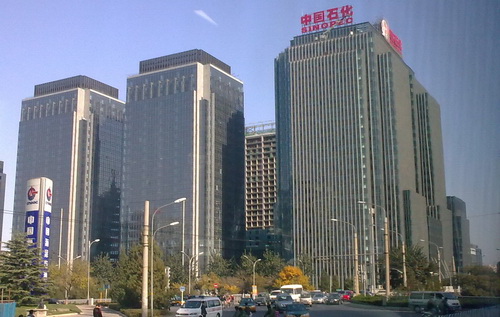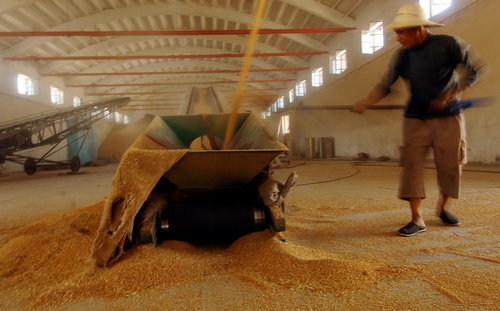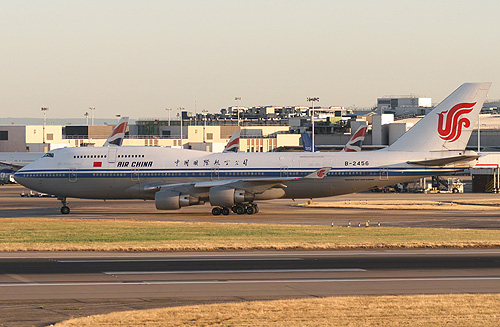Issue Wrap No. 514, Apr 11, 2011
Highlights from the EO print edition, Issue Wrap No. 514, Apr 11, 2011

China's Oil Giants Shuffle Top Executives
News, cover
~ To further promote younger leadership structure of centrally-owned enterprises (COEs), the Organization Department of the Communist Party announced a re-shuffle of the heads of China's three largest oil companies last week.
~ Fu Chengyu, former general manager of China National Offshore Oil Corporation (CNOOC), has been designated to be new board chairman of the Sinopec Group and the secretary of its CPC committee. The move won't take Fu long as it's only a short 10-minute walk from the Beijing headquarters of CNOOC across the second ring road at Chaoyangmen to his new office.
~ Additionally, Wang Tianpu, former president of Sinopec Corp, has been promoted to the position of general manager of Sinopec Group. Wang Yilin, former deputy general manager of PetroChina, has replaced Fu Chengyu and will become the new chairman of CNOOC and secretary of its CPC committee.
~ All the high-level executives mentioned above are nearing retirement age. It's said that such a re-shuffle will offer a chance for younger executives to receiving training from their senior supervisors.
~ Fu Chengy's major task is to increase oil and natural gas production at Sinopec so that it's closer to PetroChina's output.
Original article: [Chinese]

Plan to Update Regulation of Grain Industry Submitted to State Council
News, page 3
~ In the midst of inflationary pressures, efforts to improve regulation of China's grain sector are increasingly pressing. A strategic plan developed by the Development Research Center of the State Council on the issue was recently submitted to the State Council for approval.
~ Last year, the National Development and Reform Commission (NDRC) and the State Grain Administration (SGA) attempted to resolve unusual volatility in corn markets, but due to the emergence of new powerful interests in the sector, their efforts had little effect.
~ The new plan is aimed at trying to find a more effective approach.
~ Since the China Oil & Foodstuffs Corporation (COFCO), the China Grain and Logistics Corporation and other enterprises begain taking a role in making grain purchases, the role of the former monopoly buyer - the China Grain Reserves Corporation - has become much more complicated.
~ The new plan would strengthen the administration of the market. Apparently, the plan would helpf to consolidate the market position of the China Grain Reserves Corporation, though this might come at the expense of other enterprises such as COFCO.
Original article: [Chinese]
Coal Reserves Run Low but Electricity Shortages Not Imminent
News, page 6
~ The coal reserves of Central China Grid Company Limited dropped to 9.14 million tons in March. Among all the provinces covered by the company, coal reserves for Hunan at one stage, dropped so low that there would only be enough to support the province's power needs for four days, lower than the official "warning level" of seven days of power.
~ The coastal power companies under the China Datang Group and Huaneng Group are also suffering a drop in coal reserves.
~ The EO has learned that the recent drop in reserves has occured as demand from power companies increases, as they strive to hoard coal ahead of peak summer season but repairs on major transport links have also slowed delivery.
~ Despite the recent drop in reserves, the China Coal Transport and Distribution Association has denied the possibility of severe coal and power shortages. It's said that this temporary coal shortage is an indication that some believe that the government may move to link the price of coal and electricity.
~ However, power companies are unlikely to be given permission to raise prices during the off season, especially as the price of coal actually remains relatively low.
Original article: [Chinese]
RMB Goes Global - The Chinese Currency in Hong Kong
News, page 7
~ Cheung Kong Holdings issued a property trust fund in Hong Kong on April 11. This is the first IPO issued and priced in RMB in Hong Kong.
~ With RMB becoming increasingly global, RMB settlement in Hong Kong exceeded 500 billion yuan last year and RMB deposits increased from over 80 billion yuan halfway through last year to somewhere between 800 billion and a trillion yuan this year.
~ The EO has learned that the Hong Kong government will issue new products priced in RMB soon. Last year it already issued some RMB-denominated bonds.
~ Wang Zhihao, China research director for Standard Chartered Bank, said, as investors across the world are eager to share the profits brought about by China's high growth rate, RMB products are sure to be popular.
Original article: [Chinese]

What's Behind Air China's Huge Profits?
Corporation, page 26
~ Air China earned huge profits of 12.20 billion yuan last year, exceeding the combinded profits of the two other dominant state-owned airline companies: China Southern and China Eastern, and becoming the world's most profitable airline.
~ However. only half of Air China's profits come directly from the business of flying planes - the other half is generated from its investments, hedging of fuel prices and by taking advantage of exchange rates - the same three factors that were responsible for the company's huge 9.14 billion yuan loss in 2008.
~ Though company executives argue that the company's best days are still ahead of it, others believe that the company will weaken due to sluggish demand, increased fuel prices and the proliferation of high-speed rail lines.
Original article: [Chinese]
The views posted here belong to the commentor, and are not representative of the Economic Observer |
Related Stories
Popular

- BOOK REVIEW
- March 2011 Issue of EO's Book Review
- Highlights from this month's issue of EO's Book Review
Interactive
Multimedia

- EEO.COM.CN The Economic Observer Online
- Bldg 7A, Xinghua Dongli, Dongcheng District
- Beijing 100013
- Phone: +86 (10) 6420 9024
- Copyright The Economic Observer Online 2001-2011
















